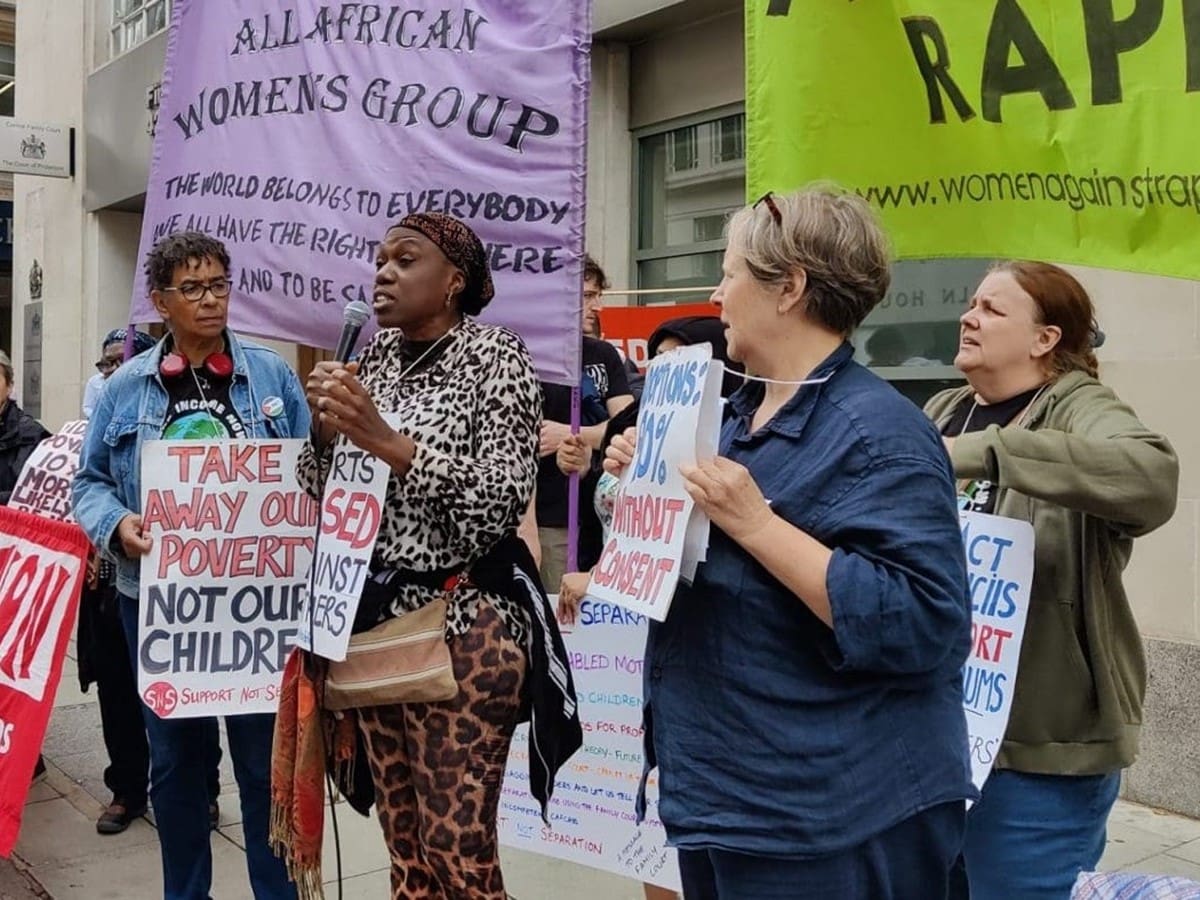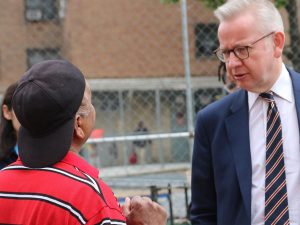Mothers seeking asylum, who were forced to leave their children behind when they fled from their home countries, are joining forces with mothers fighting to stop their children being taken by the family courts or to get them back. They are coming together after International Women’s Day (IWD) to share their experiences of the state taking their children – in the hope of ultimately affecting change.
IWD: mothers fighting back
A public meeting on Tuesday 12 March, 12pm at the Crossroads Women’s Centre, London NW5 2DX, has been organised by the All African Women’s Group (as part of the coalition Global Women Against Deportations), Support Not Separation (SNS), and Disabled Mothers’ Rights Campaign.
It will hear from mothers about how they succeeded in reuniting their family, often against horrendous obstacles.
Faith, who escaped life-threatening violence in Nigeria and fought for 18 years to be reunited with her children, said:
I thought of my children every day that we were separated. It was not my choice to leave them. Women are fleeing because of war, rape and other violence. We run so that we can stay alive and then fight to bring our children to us.
Mothers fear that without their protection, their children are vulnerable to every abuse of power by state institutions and violent predators.
Immigration officials, social services, the Home Office, and the family courts routinely disregard the precious bond between mother and child and the harm caused to children by separating them from their mother.
Forced adoption: not a thing of the past
For example, the Canary has documented how fostering and ultimately adoption has become an industry in recent years.
However, not all mothers and caregivers are subject to social services taking their children from them. This is because the state is disproportionately targeting women the system marginalises – be it due to ethnicity, class, disability, or chronic illness.
It shows that systemic racism, ableism and classism pervades a service that is supposed to support children, not snatch them from their mothers. And the driver for all this is private profit.
In the articles, we looked at how:
IWD: still more work to be done
So, at the meeting mothers will speak of how they are disparaged and the discrimination they face especially if they are poor, single, of colour, disabled, and/or report domestic/sexual violence from the father.
Hawa overturned an extremely restrictive contact order after losing her children to an abusive father. She said:
Women facing domestic violence, including physical, psychological emotional, sexual and financial abuse, are very often victim blamed, and even punished by the family courts. With the help of SNS I got more time and overnight staying contact with my children.
The event is online and in person. For more information, email aawg02[at]gmail.com or sns[at]legalactionforwomen.net You can also find out more here and here.
Featured image via Disabled Mothers’ Rights Campaign




